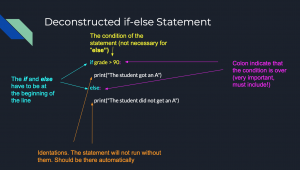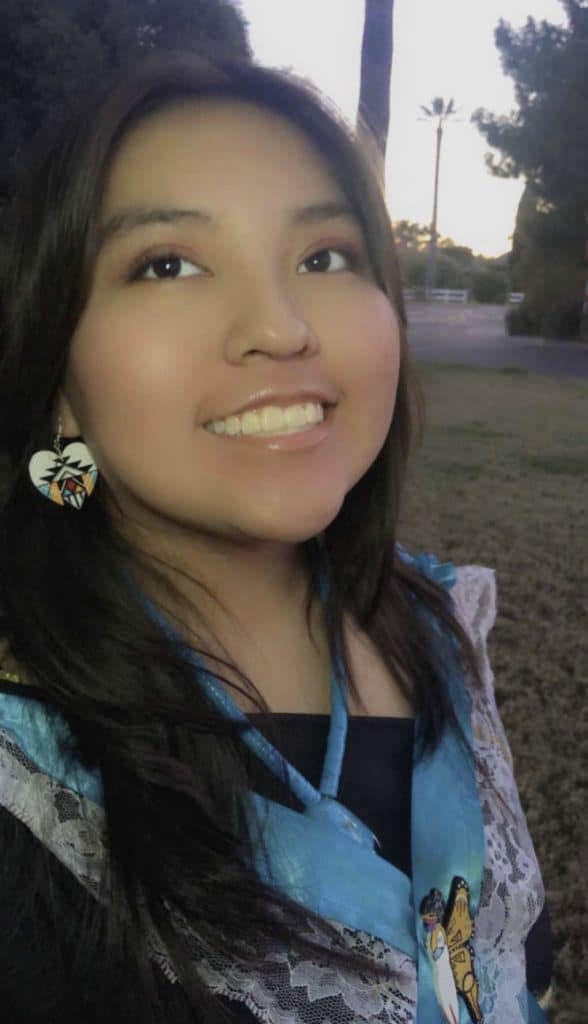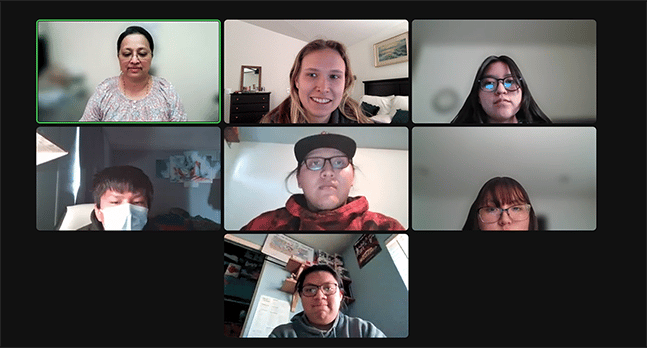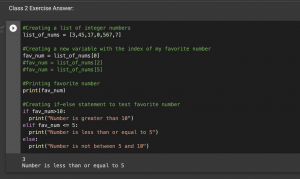Maliya Peyketewa, a freshman at Greyhills Academy High School in Tuba City wants to become an app and web developer when she gets older. And a virtual after-school coding course offered to STEM students at her school is helping her learn one of the computer languages she can use to get there.
“I get to intertwine my computer information science class and my knowledge from coding class to make my own website,” Peyketewa said. Building the website is an assignment in her computer science course, and she said she was able to add more pictures to the site because she can code. “You get to build on it and express yourself that way.”
The virtual coding class, which is entering its third year at Greyhills on the Navajo Nation, is offered after school once a week for 16 weeks each spring and fall. It was started by Ph.D. students Ayla Martinez and Jeff Propster in the Center for Ecosystem Science and Society (Ecoss), who wanted to help students build professional development skills in a safe way during the COVID-19 pandemic. Martinez and Propster, who led community engagement work as part of the NAU McAllister program in Community, Culture, and Environment, worked with Greyhills STEM instructor Reny Mathew to offer via Zoom a course in R, a coding language commonly used in biology and ecology. Subsequently, Ecoss Ph.D. candidate Peter Chuckran offered introductory and intermediate courses in Python, a language with wide-ranging professional applications.
“I was really motivated to do it because there was a global pandemic and these coding classes were a unique way to be able to continue outreach efforts remotely,” said Chuckran, who taught the coding classes at Grey Hills during the 2021-2022 school year. “The past couple of years have really highlighted how valuable it can be to have skills, like programming, that can be done remotely—both for people who cannot safely go into a workplace, and for those who want to build a career from wherever.”


Diehl, who adapted the curriculum with colleague and informatics Ph.D. candidate Benoit Gallet, said that challenges around getting computers and internet access for the students at the beginning of the year made her aware of how privilege and access shape who can learn these important skills.
“I hope the course gives the students a wider perspective of careers out there,” she said. “I’m guilty of thinking of coding as sitting at desk, programming. But it can be applied to all sorts of careers. You could be working for NFL or TikTok,” she said. “I’ll be interested to see how they take these skills and apply them to something they want to do.”
Chuckran agreed. “Google doesn’t have a headquarters in Tuba City, but there’s no reason why someone in Tuba City can’t work for Google.”
What app would Peyketewa like to design in the future? One that shortens and better communicates wait times at hospitals, she said, including the one near her home.
“I talked with my mom about the wait times at the hospital near us, which are always really, really long,” she said. “Sometimes, people don’t even get seen by a doctor, and they have to come back, and it just happens all over again.” Peyketewa says her app would help doctors communicate with patients so they know how long they will have to wait to be seen. “It’s something you can use in the real world. Especially now with COVID, it’s kind of dangerous being in the hospital.”
Kate Petersen | Center for Ecosystem Science and Society





